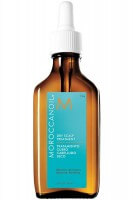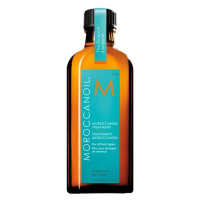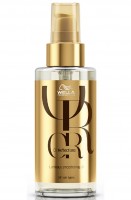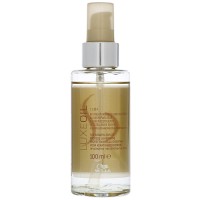Which hair oil really suits me?
Introduction:
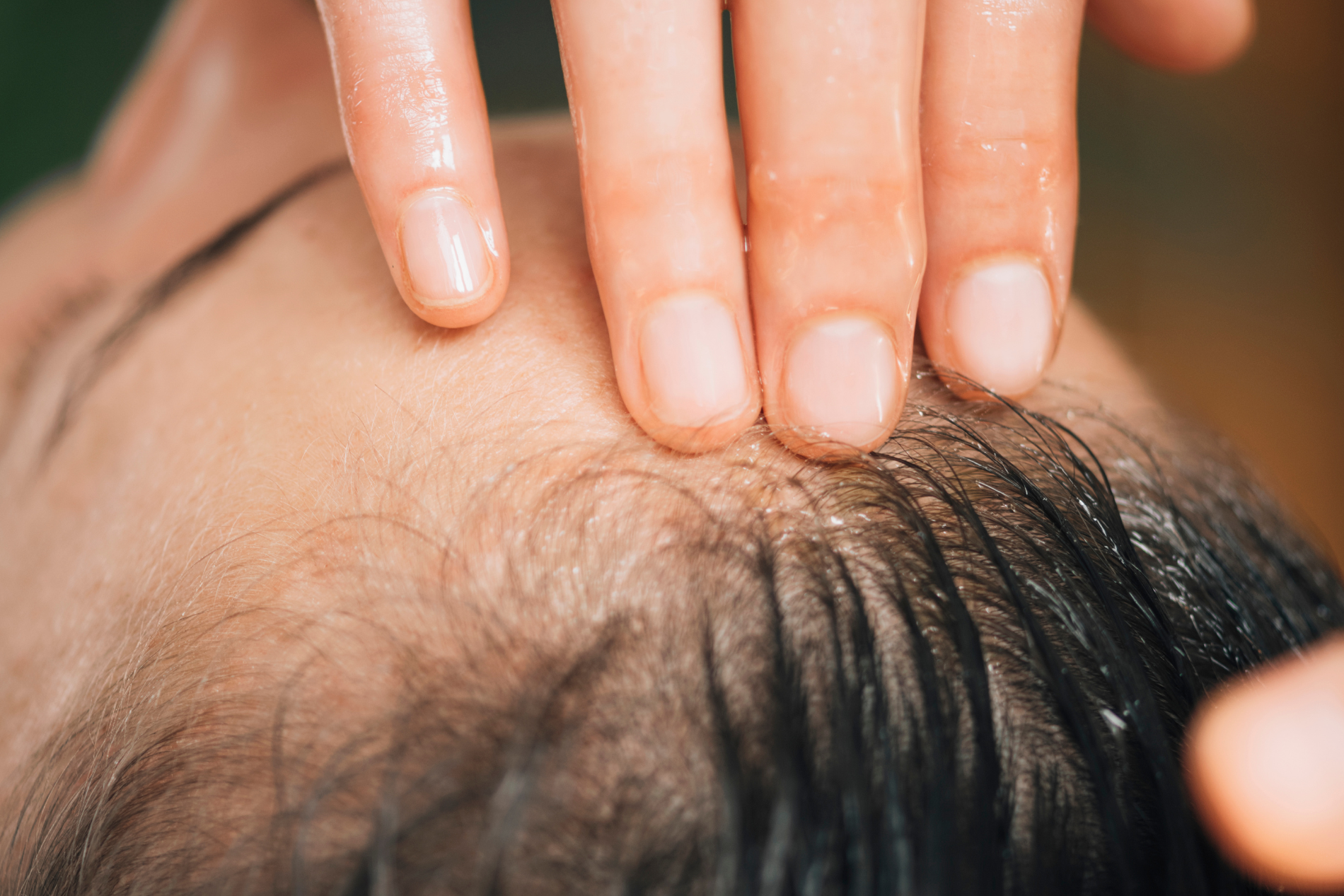
After we delved into the essentials of Shampoo 101 and Conditioner 101, today we're going to explore the fascinating world of Hair Oil. In today's world, our hair is subjected to numerous stressors, such as pollution, heat styling, and chemical treatments. Hair oils can help combat these challenges and restore your hair's natural shine and vitality. In this comprehensive guide, we'll explore the incredible benefits of hair oils, diving into the world of natural hair care solutions and homemade remedies.
Let's discover the best natural hair oils, the different types of hair oils we can find, learn how to create your own hair oil blends at home, and find out everything you need to know about hair care with our Hair Oil 101 guide. We'll cover various aspects of hair oils, including application methods, and tips for choosing the right one for your hair needs. Get ready to embark on a journey to healthier, more beautiful hair! Let's dive into it !
The Different Types of Hair Oils and Their Benefits
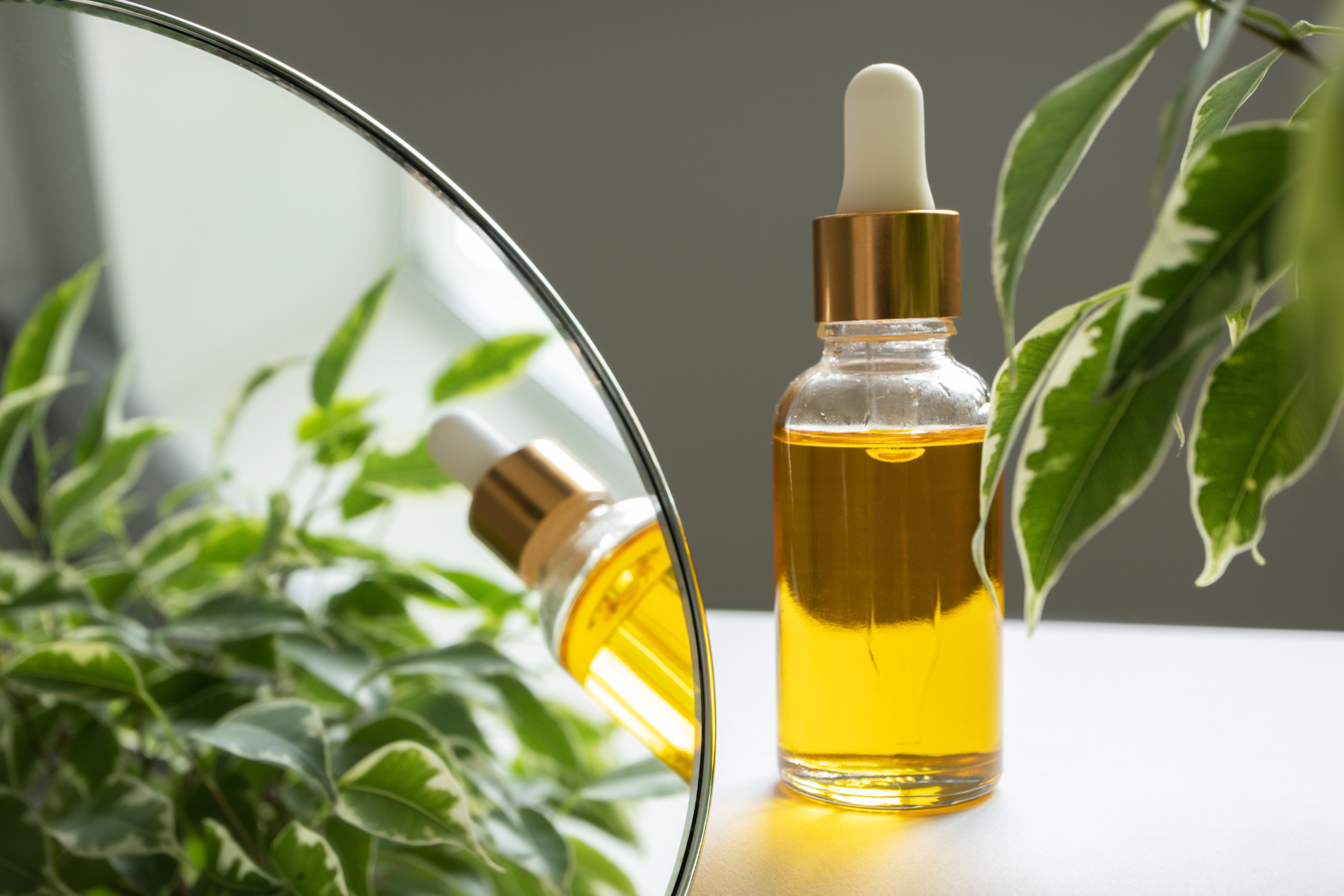
1.1 Essential Oils
Essential oils are concentrated plant extracts that contain the essence of a plant's fragrance and beneficial properties. They are commonly used in aromatherapy and can also provide valuable benefits for your hair. Some popular essential oils for hair care include lavender (promotes hair growth), rosemary (strengthens hair), and tea tree oil (fights dandruff and scalp irritation). Always remember to dilute essential oils with a carrier oil, as they can be too potent to apply directly to the scalp and hair.
1.2 Vegetable Oils
Vegetable oils, also known as carrier oils, are derived from the seeds, nuts, or fruits of plants. They are rich in nutrients, fatty acids, and antioxidants, which can nourish, hydrate, and protect your hair. Some of the best vegetable oils for hair care include coconut oil (deeply moisturizes and strengthens hair), argan oil (smooths frizz and adds shine), and castor oil (promotes hair growth and thickness). These oils can be used individually or mixed together to create customized hair treatments based on your hair's unique needs.
1.3 Mineral Oils
Mineral oils are derived from petroleum and are often used in hair care products for their ability to lock in moisture and provide a barrier against environmental stressors. While they can be effective at preventing moisture loss, mineral oils may not provide the same level of nourishment and benefits as their natural counterparts. Examples of mineral oils include petrolatum and paraffin. It's essential to note that some people may experience scalp irritation or buildup from using mineral oils, so always be cautious and consider trying natural alternatives if you encounter any issues.
How to Choose the Best Hair Oil for Your Needs

2.1 Identify Your Hair Type
The first step in choosing the right hair oil is to identify your hair type. Different hair types have unique needs and may benefit from specific oils. For example, fine hair may require lightweight oils that won't weigh it down, while curly hair may need more moisturizing and nourishing oils. Hair types can generally be categorized as straight, wavy, curly, or coily. Additionally, consider your hair's porosity, which refers to how easily your hair absorbs and retains moisture. Knowing your hair type and porosity will guide you in selecting the most suitable hair oil.
2.2 Understand Your Hair's Needs
Next, it's crucial to understand your hair's specific needs. Some common hair concerns include dryness, frizz, breakage, and slow growth. By pinpointing your hair's primary needs, you can target them with the appropriate hair oil. For instance, if your hair is dry and brittle, look for oils with deep moisturizing properties like coconut oil or argan oil. If you're experiencing hair loss or slow growth, consider using castor oil or rosemary essential oil to stimulate hair growth.
2.3 Choose the Oil Based on Your Goals
Finally, select the hair oil that aligns with your hair goals. If your goal is to maintain your hair's overall health and shine, opt for versatile oils like argan oil or jojoba oil. If you're looking to protect your hair from heat styling damage, consider using grapeseed oil, which has a high smoke point and can act as a heat protectant. For those wanting to promote hair growth and thickness, castor oil can be an excellent choice. By aligning your hair oil selection with your goals, you can maximize the benefits and enjoy gorgeous, healthy hair.
Let's give some examples to some hair types and the oils they need :
- Fine Hair:
Look for lightweight, non-greasy oils that won't weigh your hair down
Examples: Jojoba oil, grapeseed oil
- Thick or Coarse Hair:
Opt for heavier, nourishing oils to penetrate and tame thick or coarse hair
Examples: Coconut oil, castor oil
- Curly Hair:
Choose oils that enhance curl definition and combat frizz
Examples: Argan oil, avocado oil
- Dry or Damaged Hair:
Pick oils that provide deep hydration and help repair damaged hair
Examples: Olive oil, almond oil
- Oily Hair or Scalp:
Select lightweight oils that help balance sebum production without adding extra grease
Examples: Jojoba oil, tea tree oil (for its antimicrobial properties)
- Hair Prone to Dandruff or Scalp Issues:
Opt for oils with antibacterial, antifungal, or anti-inflammatory properties
Examples: Tea tree oil, neem oil, peppermint oil
How to Use Hair Oils for Best Results
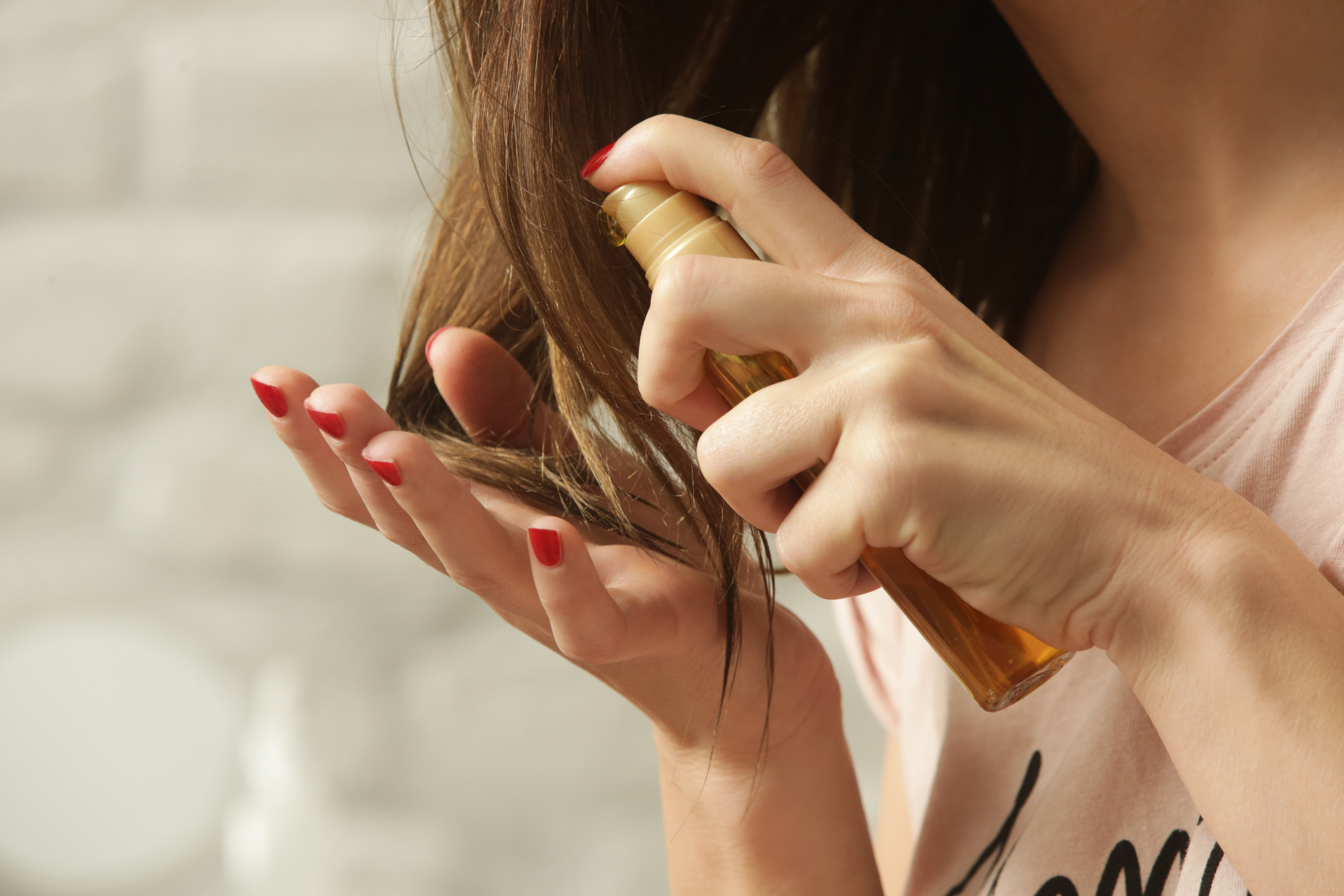
3.1 Application Techniques
The way you apply hair oil can significantly impact its effectiveness. Some popular application techniques include:
Pre-shampoo treatment: Massage a generous amount of oil into your scalp and hair before shampooing to provide extra nourishment and protection.
Post-shampoo treatment: After washing your hair, apply a small amount of oil to damp hair to lock in moisture and combat frizz.
Scalp massage: Regularly massaging your scalp with hair oil can promote circulation and support hair growth.
Overnight treatment: For a more intensive treatment, apply oil to your hair and scalp, cover with a shower cap or silk scarf, and leave it on overnight.
3.2 Frequency of Use
The frequency of hair oil usage will depend on your hair type, needs, and the specific oil you're using. Generally, it's recommended to use hair oil once or twice a week. However, some lightweight oils like argan oil can be used daily to maintain hair's health and shine. For more intensive treatments, such as overnight oil treatments or hot oil treatments, you may want to limit usage to once every two weeks. Always pay attention to how your hair responds and adjust the frequency accordingly.
3.3 Tips to Maximize Benefits
To make the most of your hair oil treatment, consider the following tips:
- Always use high-quality, pure oils to ensure the best results.
- Warm the oil slightly before applying it to your hair and scalp to help it penetrate more effectively.
- Mix multiple oils to create a customized blend that addresses multiple hair concerns.
- Be patient and consistent with your hair oil treatments, as it may take some time to see noticeable improvements.
Hair Oil Myths and Misconceptions
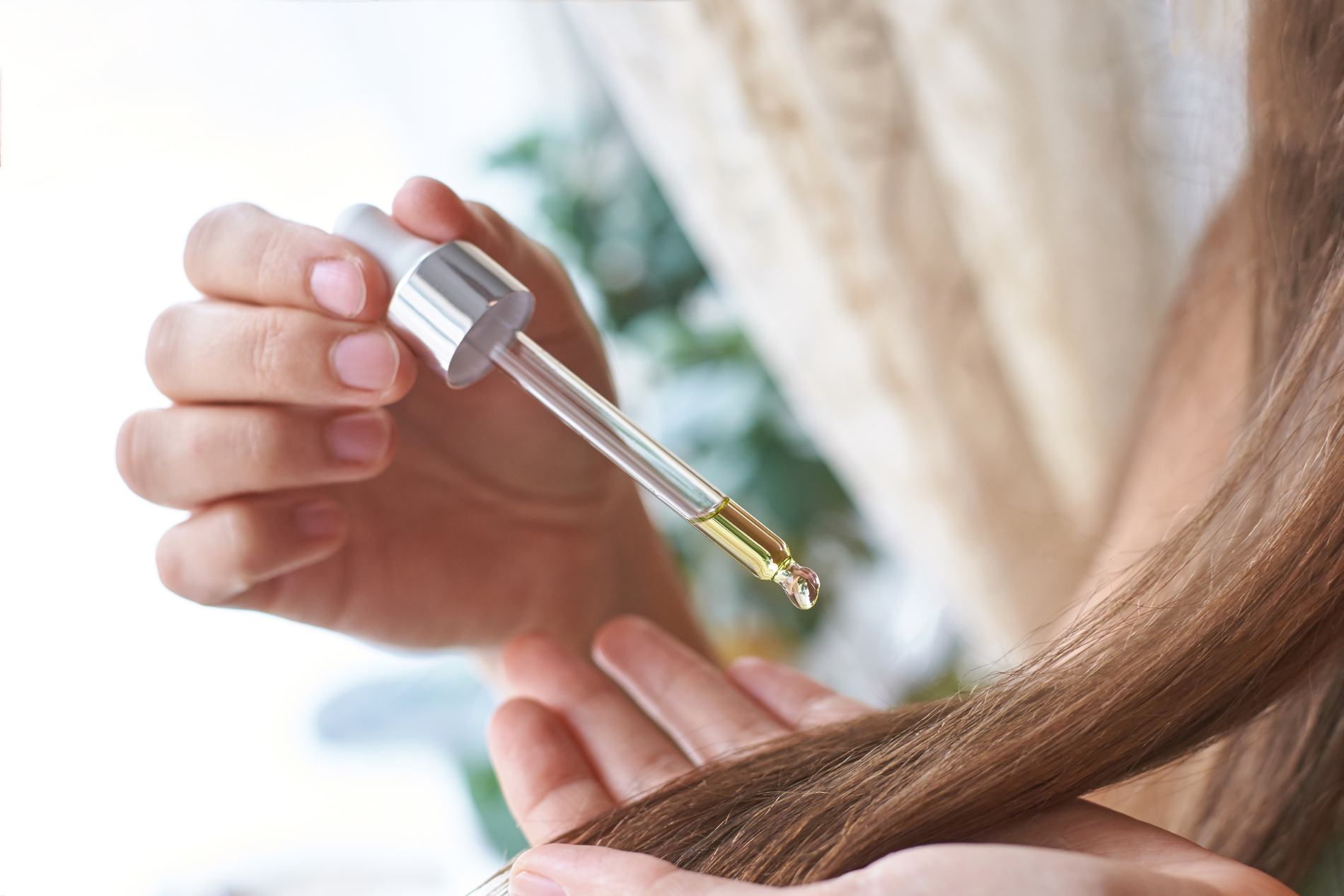
In the realm of hair care, hair oils have been lauded for their numerous benefits. However, they are also surrounded by myths and misconceptions that can cause confusion for those considering incorporating oils into their hair care routine. In this section, let's debunk some common hair oil myths and misconceptions, using scientific evidence and expert opinions to set the record straight.
Myth 1: Hair oils cause greasiness
Truth: It's true that excessive use of hair oils can result in greasy hair; however, the key lies in proper application and appropriate quantities. Hair oils are intended to nourish, hydrate, and protect your tresses. When used correctly, they shouldn't cause greasiness. To prevent this issue, use only a small amount of oil (a few drops to a dime-sized amount, depending on your hair length and thickness) and concentrate on applying it to the mid-lengths and ends of your hair, avoiding the scalp.
Myth 2: Hair oils are not suitable for oily scalp
Truth: Despite popular belief, hair oils can still be beneficial for individuals with oily scalps. The trick is to choose the right type of oil and use it sparingly. Lightweight oils, such as jojoba and grapeseed oil, can help balance sebum production and soothe an oily scalp without weighing down your hair. Be sure to apply these oils only to the lengths and ends of your hair, steering clear of the scalp.
Myth 3: All hair oils are the same
Truth: Hair oils differ in terms of their chemical composition, properties, and benefits. Some oils, like coconut and argan, are rich in fatty acids and provide intense hydration, while others, like tea tree oil, have antibacterial and antifungal properties that can help treat dandruff and other scalp conditions. It's essential to research and choose the right oil based on your hair type, texture, and specific needs.
Myth 4: Hair oil can replace conditioner
Truth: Although hair oils provide moisture and nourishment, they cannot entirely replace conditioners. Conditioners contain ingredients that smooth hair cuticles, making it easier to detangle and manage hair. Hair oils, on the other hand, penetrate the hair shaft to nourish and protect. Both products serve different purposes and work best when used in conjunction to maintain optimal hair health.
Myth 5: Hair oils cause hair loss
Truth: Hair oils do not cause hair loss when used appropriately. In fact, certain oils, like rosemary and peppermint, can stimulate hair growth by increasing blood circulation to the scalp. However, overuse or improper application of hair oils can lead to clogged follicles and an unhealthy scalp, which may contribute to hair loss. To prevent this, ensure that you use the right amount of oil and cleanse your scalp regularly.
Common Mistakes to Avoid with Hair Oils
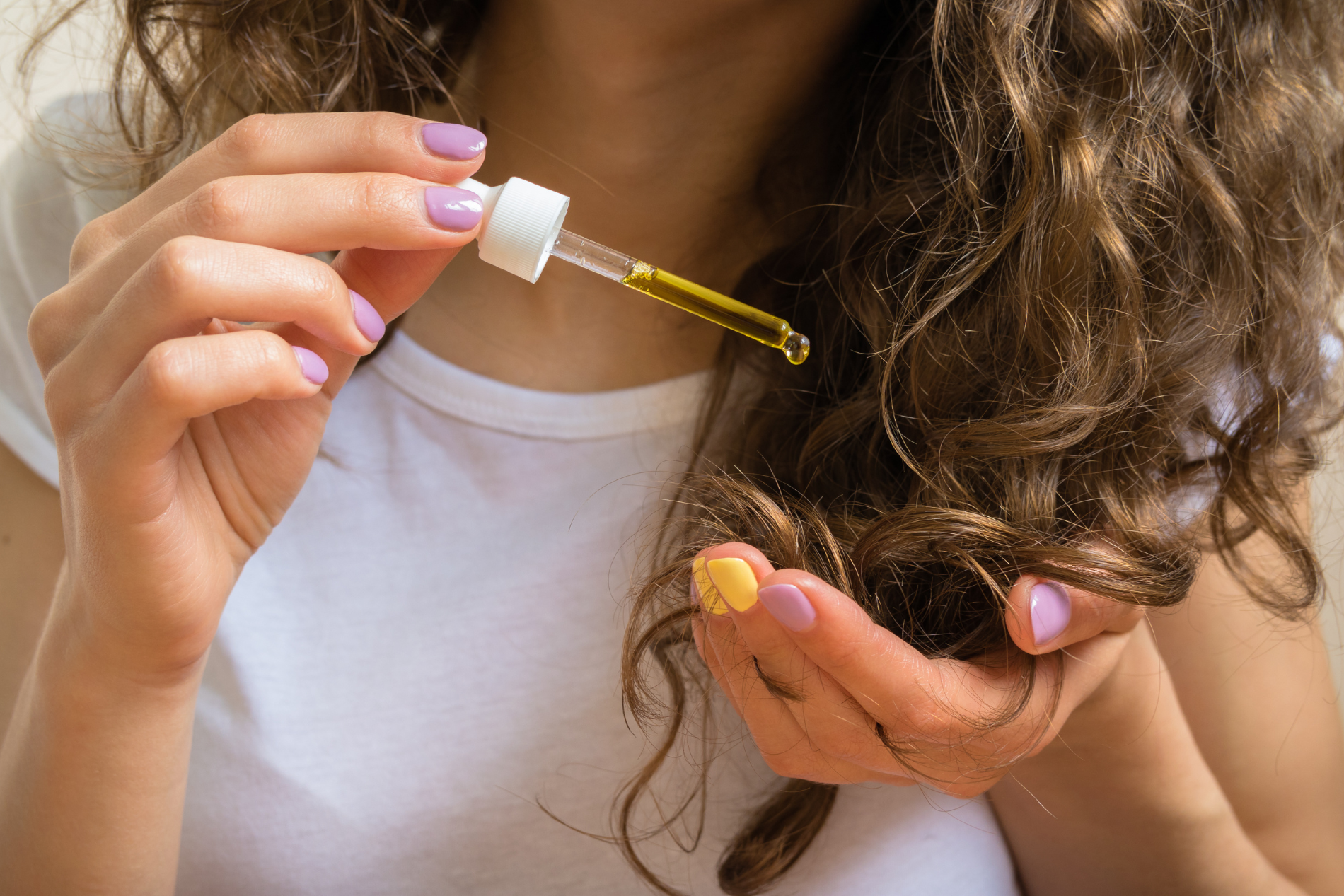
4.1 Overusing Hair Oils
While hair oils can provide numerous benefits, it's essential to avoid overusing them. Applying too much oil or using oil too frequently can lead to greasy, weighed-down hair and may even cause scalp issues like clogged pores and dandruff. To prevent this, use only the recommended amount of oil for your hair type and adjust the frequency of usage based on your hair's response.
4.2 Choosing the Wrong Oils
Selecting the wrong hair oil for your needs can lead to unsatisfactory results or even exacerbate existing hair issues. It's crucial to choose oils based on your hair type, needs, and goals, as discussed in Section 2. For example, using heavy oils like coconut oil on fine hair may weigh it down, while not using a sufficiently moisturizing oil on dry, damaged hair might not provide the necessary nourishment. Do your research and consult a hair care professional if you're unsure which oil is best for you.
4.3 Neglecting Other Aspects of Hair Care
Relying solely on hair oils for hair care is not enough to maintain optimal hair health. It's essential to have a comprehensive hair care routine that addresses all aspects of hair health. This includes using the right shampoo and conditioner, getting regular trims to remove split ends, protecting your hair from heat and environmental damage, and maintaining a healthy diet and lifestyle. By taking a holistic approach to hair care, you'll ensure the best results and enjoy beautiful, healthy hair.
By being mindful of these potential pitfalls, you can make the most of your hair oil treatments and avoid any negative consequences.
Homemade Recipes and DIY for Creating Your Own Hair Oil Blends
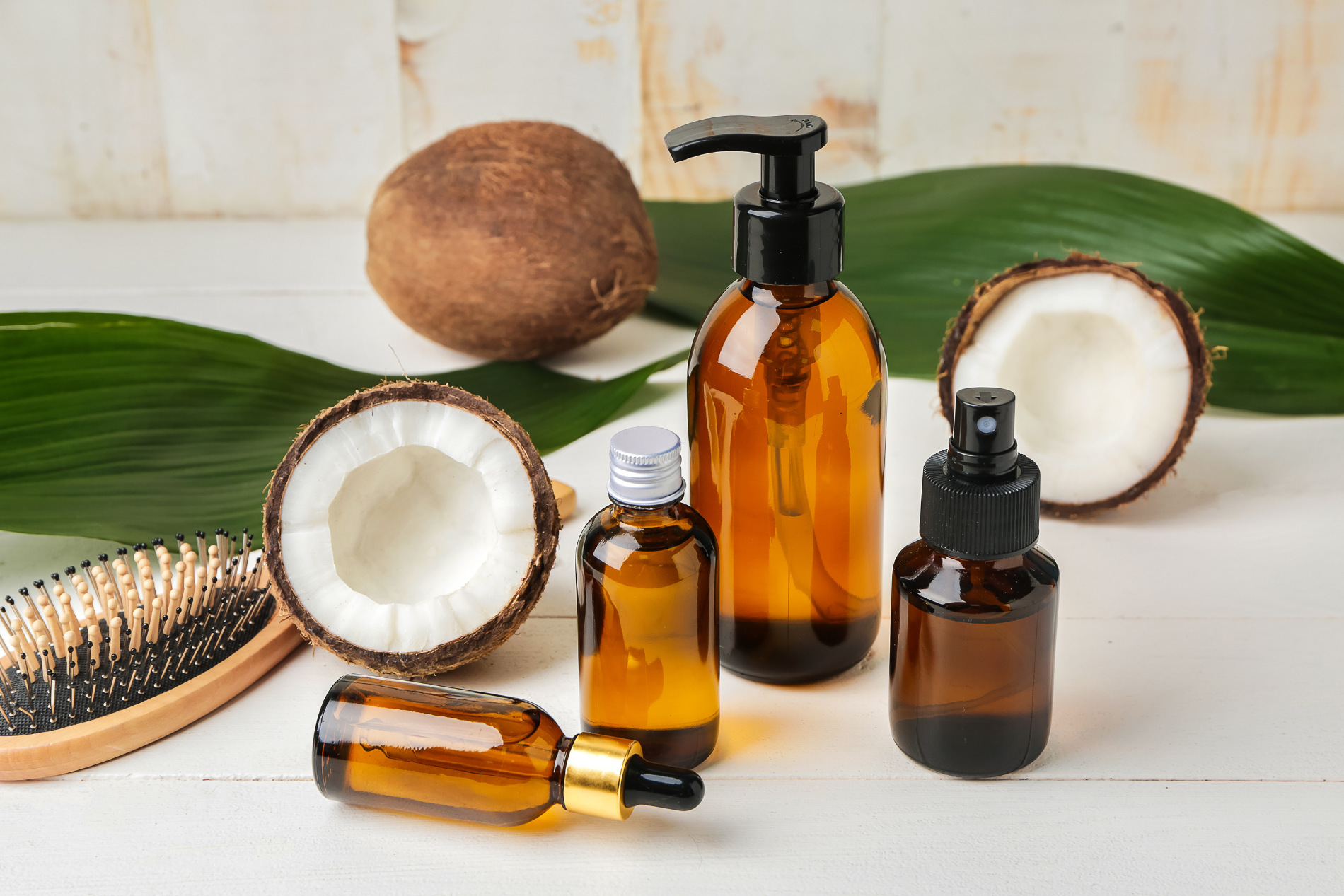
5.1 Recipe for Dry and Damaged Hair
For those struggling with dry and damaged hair, this nourishing hair oil blend can help restore your hair's health and shine:
- 2 tablespoons of coconut oil (deeply moisturizes and strengthens hair)
- 1 tablespoon of argan oil (smooths frizz and adds shine)
- 5 drops of lavender essential oil (promotes hair growth)
- Combine all the ingredients in a small bottle, and shake well to mix. Apply the blend to your hair and scalp as needed, focusing on the ends to help repair split ends and damage.
5.2 Recipe for Stimulating Hair Growth
If you're looking to promote hair growth, this invigorating hair oil blend can help stimulate your scalp and encourage healthy hair growth:
- 2 tablespoons of castor oil (promotes hair growth and thickness)
- 1 tablespoon of jojoba oil (mimics natural scalp oils and balances oil production)
- 5 drops of rosemary essential oil (strengthens hair and supports growth)
- Mix all the ingredients in a small bottle and shake well to combine. Massage the blend into your scalp, focusing on areas with thinning or slow-growing hair, and leave it on for at least 30 minutes before washing out.
5.3 Recipe for Oily Hair
For those with oily hair, this lightweight hair oil blend can help balance oil production and improve overall hair health:
- 2 tablespoons of grapeseed oil (lightweight and non-greasy)
- 1 tablespoon of almond oil (nourishes and conditions hair)
- 5 drops of tea tree essential oil (fights dandruff and scalp irritation)
- Combine all the ingredients in a small bottle and shake well to mix. Apply the blend to your hair, avoiding the roots to prevent any potential buildup. Leave it on for at least 30 minutes, then wash your hair as usual.
By experimenting with these recipes and adjusting them to suit your unique hair type and concerns, you can enjoy the benefits of customized hair oil treatments at home.
Key Takeaways:
In this comprehensive guide, we have explored the world of hair oils, covering various topics such as the different types of hair oils and their benefits, how to choose the best hair oil for your needs, application techniques and usage frequency, common mistakes to avoid, and homemade recipes for creating your own hair oil blends.
By understanding the unique properties and benefits of different hair oils, as well as how to use them effectively, you can make informed decisions and find the perfect hair oil to help you achieve your desired hair results. Whether you're dealing with dry, damaged hair or looking to promote hair growth, there's a hair oil solution that can help you reach your goals.
We hope you found this article informative and engaging. If you did, please feel free to share it with your friends and family who might also benefit from learning about hair oils. We would also love to hear about your experiences with hair oils, so please leave a comment below with your stories, tips, and favorite hair oil recipes. Together, we can help each other on the journey towards healthier, more beautiful hair.



